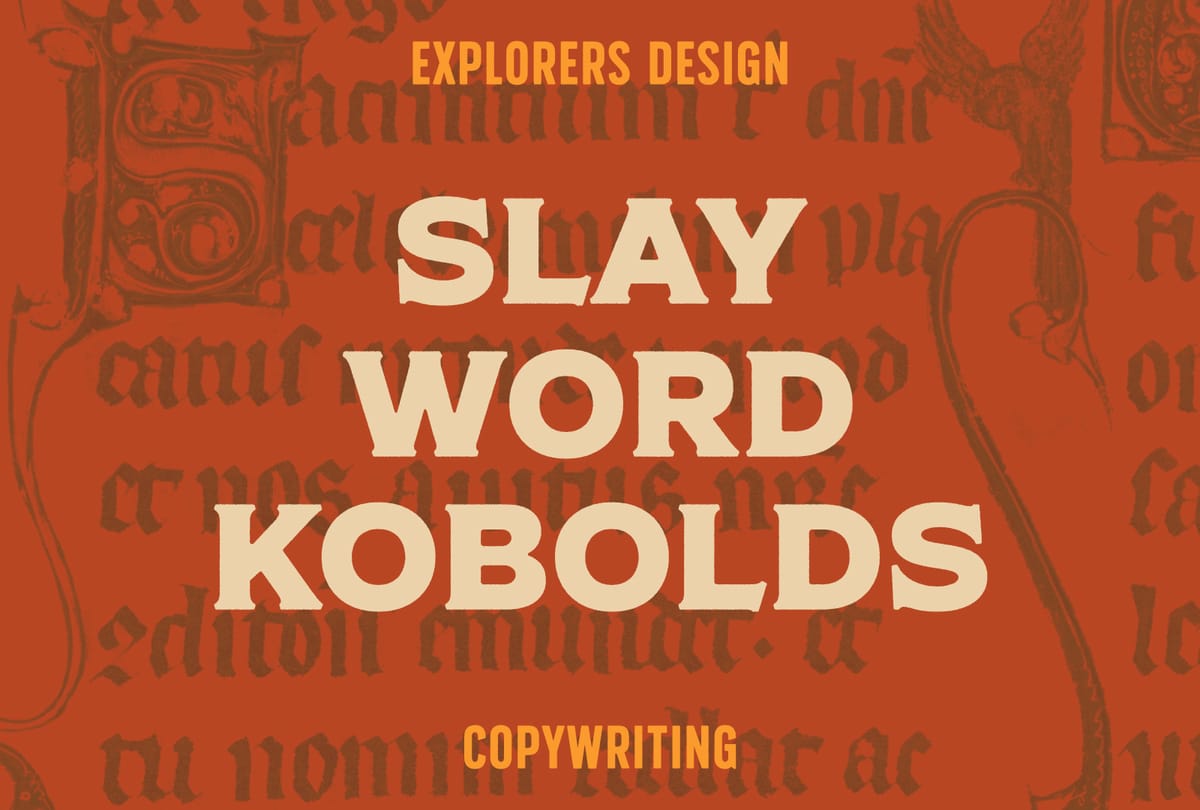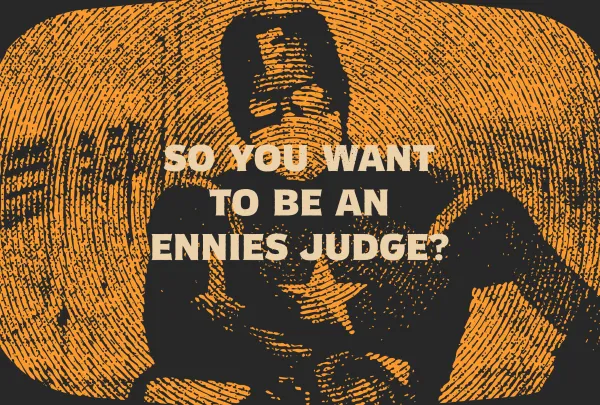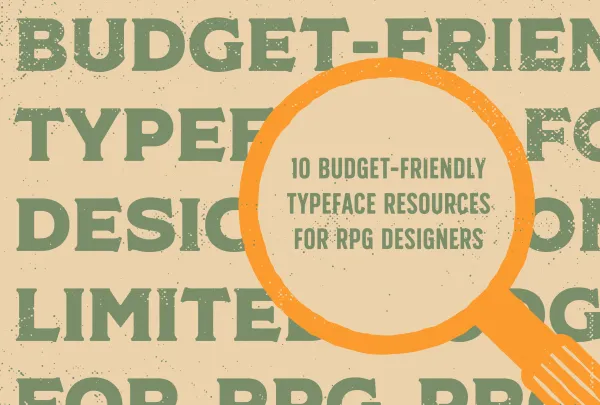Slay Word Kobolds | Copywriting
Avoid these three copywriting mistakes when promoting your game.

The fun part is over. The mechanics are greased, the pages are laid, and the rules are written. Now, you have to sell the damn thing. You have to become a copywriter.
There's a lot to be said about copywriting—that it's hell, mostly. But for this article, the "copy" or words you write must promote your game with a promise, hook, or compelling description.
This game will make you afraid of the dark again.
This game pumps out stories like The Green Knight.
This game is Warhammer 40k but with ABBA and sequins.
*Disclaimer: Tablesetting phrases like "This game..." and "In this RPG..." are normally unnecessary, so don't use the above examples as models.
Good marketing copy says something interesting, but more importantly, it says something firmly. It leaves no wiggle room, escape routes, or plausible deniability.
In writing, we call these weasel words; Cowardice that sneaks into our copy. There are three common word-kobolds: qualifiers, caveats, and the subjunctive mood.
Avoid qualifiers like they're poison.
Often used to soften a claim, action, or trait. Qualifiers mostly undermine, cheapen, or suggest the opposite of what’s intended.
During play, combat is fast and intuitive. Says combat is fast and intuitive. No exceptions.
During play, combat is faster and more intuitive. Says it's faster and more intuitive than something else. Maybe not by much.
We pay our writers well. Suggests equitable compensation.
We pay our writers better. Suggests we pay them more than dirt.
At best, qualifiers blur the edges of our promises. At worst, they hide a bitter truth like a pill in peanut butter. When in doubt, be specific, say it straight, or better yet—show, don't tell.
Disarm caveats before you're trapped.
Caveats sneak their way into copy as words, phrases, and actions that pass the buck, duck responsibility, or substitute actually doing what you say.
This game is designed to make you feel like a superhero. Designed to do something is still a long and scenic walk from doing the thing. Just make the promise or don't.
This rpg is for groups that want to have a good time. Generally, every group wants to have a good time. If they want a bad time, they don't need a game to help them. This phrase disclaims any responsibility by making your group the exit clause in their defense.
Wherever your imagination takes you, this game has rules for it. Especially if that imagination is willing to do most of the work. Sometimes the caveat disowns the details that make them actionable. Games that make these claims are better off listing examples, otherwise, they retain unfair advantages.
Dispel subjunctive moods like illusions.
A subjunctive mood is an expression of an idea, possibility, or dream. Copywriting that uses the subjunctive mood sidesteps reality for a stakes-free, risk-free reality.
RPG marketing that uses the subjunctive mood might suggest values or tonal attributes but lack any substance to back them up.
We want players to feel safe when they play our game. Doesn’t say they succeeded. It could be interpreted as they wanted to but ultimately failed to. Avoid these kind of statements. Be direct. State your intentions. Or better yet, show your work; list safety tools, describe your playtesting, or promote a safety consultant.
This would be the perfect game for a late-night hang. Sometimes the subjunctive mood and caveats join forces to create a prophecy where your game is good in the future. This is a fine statement from a reviewer or a friend but in marketing, it's as trustworthy as a rake around Mr. Bean.
Kobold-Free Examples
The good and bad news about weasel words is that they're getting rare. A sign of the "professionalization" of this cottage industry. Creative outfits, big and small, are getting savvy with their pitches—and naturally omitting the buggers.
So, rather than share bad examples and beat up fledglings, here are some great examples of ad copy that promote their game with a promise, idea, and description.
Plasmodics by Will Jobst at Good Luck Press
In the remnants of the world, play in the smithereens.
Plasmodics is the tabletop roleplaying game of post-apocalyptic, gonzo sci-fi, where (sorta) humans, (kinda) animals, (mostly) robots, and (definitely) aliens join hand-in-mutated-hand.
- In addition to never using a qualifier or caveat, Will plants a flag for Plasmodics by calling it the game of its own genre. It ditches the kobold bait by not playing the direct comparison game.
- The opening line is a creative twist on something familiar. We've heard variations of the phrase, "play in the ruins of a doomed world." The word smithereens brings a new energy and attitude to the pitch.
- Similarly, the use of parentheticals in the succeeding paragraph gives the pitch a unique tone of voice and sense of rhythm that shows us how the game feels without telling us.
Mörk Borg by Pelle Nilsson at Stockholm Kartell
A doom metal album of a game. A spiked flail to the face. Light on rules. Heavy everything else.
MÖRK BORG is a pitch-black apocalyptic fantasy RPG about lost souls and fools seeking redemption, forgiveness or the last remaining riches in a bleak and dying world.
- Simple, direct, and full of flavor. Metaphors and short choppy sentences cut right to the spine of what this game is about. A worst example might have used similies and flirted with caveats and the subjunctive mood.
- Notice how the two passages pitch the game from two different directions. The opening lines deliver the style and themes of the game, while the next paragraph is more familiar and straightforward.
Warped Beyond Recognition by Quadra
Explore a spaceship, hunt down psychics, learn the secrets of their powers, descend into madness.
Warped Beyond Recognition is a module for the Mothership Sci-Fi Horror RPG in which your players will explore a research vessel in deep space, uncover the site of a terrible series of experiments, and discover their ultimate purpose — if the test subjects don't get to them first!
- Sometimes all you need are the game's contents. They tend to do a lot of the heavy lifting without any of those nasty kobolds getting in the way.
- There's a caveat here, but it's not undermining the pitch. Instead, it's another example that leaves the audience on a cliffhanger. Remember: you can use weasel words in certain contexts—they're just not good for promotion.
Conclusion
In rare cases, using qualifiers, caveats, and subjunctive moods embodies a voice that's impossible to create otherwise, but most of the time your game's marketing copy should avoid them.
When copywriting consider this:
Is there something else I can say—something that isn't flighty, obtuse, or vague? It's better to make a small claim confidently than to make a big one sorta, kinda, maybe.
Is there a way to show, not tell? Marketing shouldn't always be describing the game directly. Often, the most effective copy is the kind that encourages your audience to fill in the blanks for you.
Until next time.
Explorers Design is a production of Clayton Notestine. If you liked this article, please consider liking, sharing, and subscribing. Members who pay just $5/month also get unlimited access to templates, tools, and resources.




